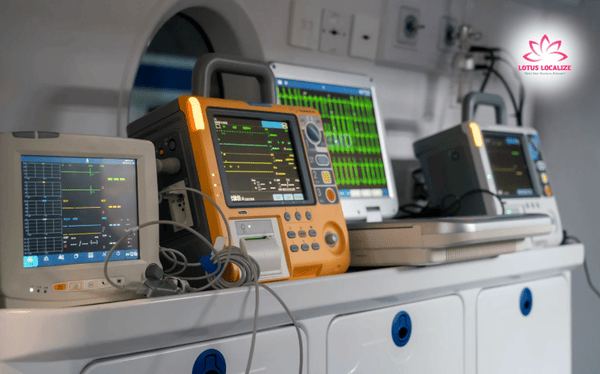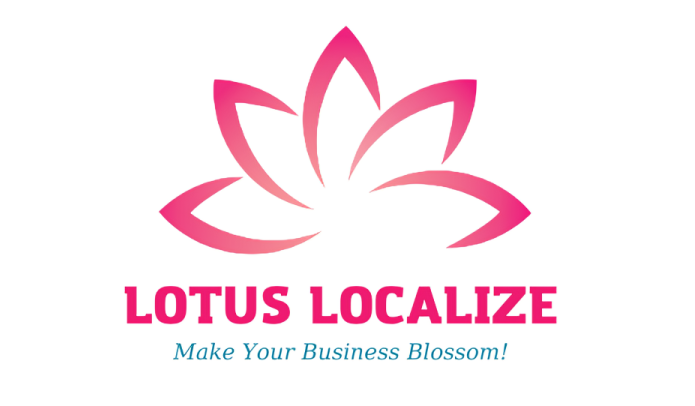
Understanding the vital role of medical interpreters in healthcare
In today’s increasingly diverse world, effective communication is a cornerstone of quality healthcare. One essential element of this communication is the role of medical interpreters, who bridge the language gap between healthcare professionals and patients who speak different languages. A medical interpreter ensures that patients fully understand their diagnoses, treatments, and health instructions, leading to better patient outcomes. In this post, we’ll explore the vital role medical interpreters play, the skills they need, and the different types of interpreting in the medical field.
Defining medical interpreters
A medical interpreter is a trained professional who facilitates communication between healthcare providers and patients who do not speak the same language. Their role is not just to translate words but to ensure that the full meaning, tone, and intent of the communication are conveyed accurately. Medical interpreters work in various healthcare settings, including hospitals, clinics, mental health facilities, and during emergency care situations.

Unlike general interpreters, medical interpreters need specialized knowledge of medical terminology, healthcare procedures, and the ethical considerations involved in interpreting sensitive health information.
Read more: Translation vs localization: What you need to know for effective global communication
Why are medical interpreters important?
The importance of medical interpreters cannot be overstated. They play a crucial role in eliminating language barriers, which is vital for patient safety and health outcomes. Miscommunication in a medical context can lead to misunderstandings, incorrect diagnoses, improper treatment, and, in some cases, serious medical errors. A skilled interpreter ensures that the healthcare provider’s instructions are clearly understood by the patient and vice versa, ensuring that both parties are on the same page.

Moreover, the presence of a medical interpreter fosters trust between the patient and the healthcare provider, making the patient feel more comfortable, respected, and valued. For healthcare organizations, this also contributes to higher patient satisfaction and compliance with treatment plans, which is a win-win for both patient care and healthcare delivery.
Key responsibilities of a medical interpreter
A medical interpreter’s responsibilities go far beyond simply translating words. They must be able to interpret meaning accurately while maintaining neutrality and confidentiality. Some of their key responsibilities include:
- Accurate interpretation: They must ensure the message is conveyed precisely without adding, omitting, or altering information. This includes both verbal and non-verbal cues.
- Cultural mediation: Medical interpreters must be aware of cultural differences and ensure that these do not interfere with communication, helping the patient and provider understand each other’s cultural contexts.

- Maintaining confidentiality: Like healthcare providers, interpreters are bound by confidentiality agreements and must ensure that all medical information is kept private.
- Ethical decision-making: Medical interpreters must navigate sensitive situations while adhering to a code of ethics, ensuring patient well-being without taking sides or influencing decisions.
Skills and attributes of successful medical interpreters
A successful medical interpreter must possess a variety of skills and attributes to perform their role effectively. Some of the most critical skills include:
- Fluency in multiple languages: A deep understanding of both languages being interpreted is a given. Interpreters must be fluent in medical terminology in both languages to ensure clear communication.
- Strong memory and note-taking: Medical interpreters often handle large volumes of information, requiring a strong memory and efficient note-taking skills to ensure nothing is lost in translation.

- Cultural competence: They must have a deep understanding of the cultures associated with both languages to accurately interpret not only the words but the intent and meaning behind them.
- Calm under pressure: Medical situations can often be stressful and time-sensitive. A good medical interpreter remains calm and composed, ensuring effective communication even in high-pressure scenarios.
- Ethical integrity: Interpreters must follow strict ethical guidelines, including confidentiality, impartiality, and accuracy in all interpretations.
Read more: Top 10 industries with the highest demand for translation services
Different types of medical interpreting
There are several types of medical interpreting services available, depending on the needs of the healthcare setting:
- Consecutive interpreting: This is the most common form used in medical settings, where the interpreter speaks after the provider and patient have each finished their part. This allows the interpreter to process and deliver accurate translations of entire phrases or sentences.

- Simultaneous interpreting: In high-stakes situations such as emergency surgeries or multilingual conferences, simultaneous interpreting is used. The interpreter speaks at the same time as the speaker, allowing real-time translation.
- Over-the-phone and video remote interpreting: In some cases, on-site interpreters may not be available. For remote or urgent situations, interpreters can assist over the phone or through video calls, ensuring that language services are always accessible.
Each type of interpreting comes with its own challenges, and medical interpreters must be adept at selecting the most appropriate method for each situation.
In summary, medical interpreters are an indispensable part of the healthcare system, ensuring that patients from diverse linguistic backgrounds receive the care they need. Their ability to interpret medical terminology accurately while considering cultural contexts significantly improves patient outcomes and reduces the risk of errors. From hospitals to clinics, medical interpreters act as the communication bridge that allows healthcare providers to offer better care.
Whether you need on-site interpreting or remote interpreting services, Lotus Localize offers professional, reliable medical interpreting solutions that ensure clear and culturally appropriate communication. Trust us to help you break down language barriers and improve patient care.
Contact us today at our hotline or Whatsapp: + 84 866 224 968 or visit the websites: dichthuathoasen.com/en/. Let Lotus Localize accompany you in bringing products, people, and culture to the global stage, and together, we’ll create miracles!
QUALITY PROMISE
At Lotus Localize, we are dedicated to delivering high-quality services and ensuring the utmost satisfaction in every client project. Our team of translators and staff consistently exert effort and adhere rigorously to quality management procedures. This commitment guarantees that each project progresses seamlessly, meets deadlines, and exceeds our clients' expectations.












